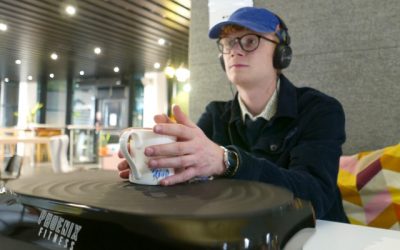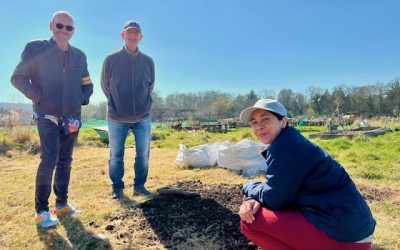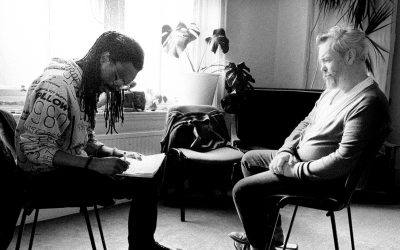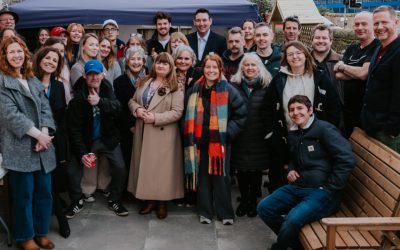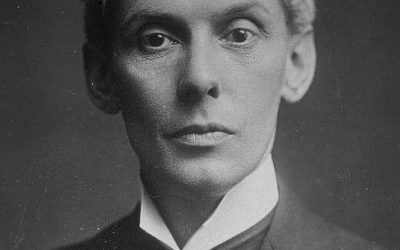News & Events
Filmmakers capture daily life at Thorntree Street
From candid conversations to trips to the hospital, this documentary captures the day-to-day life of a community of residents in our Leith accommodation service.

Thorntree resident in the communal area Image credit, Antonio Pozojević
An intimate portrait of life at Thorntree Street
When filmmakers Nadia Lapcevic, Isaac Knights-Washburn and Antonio Pozojević began volunteering at Thorntree Street they didn’t plan to make a film about Rowan Alba’s first settled accommodation service. A resident learned they were filmmakers and suggested they make a film about life there. The door had been opened to an evocative new project. With the film now in the final stages of production and seeking a distributor, we got the chance to ask them some questions about how this project came into existence.
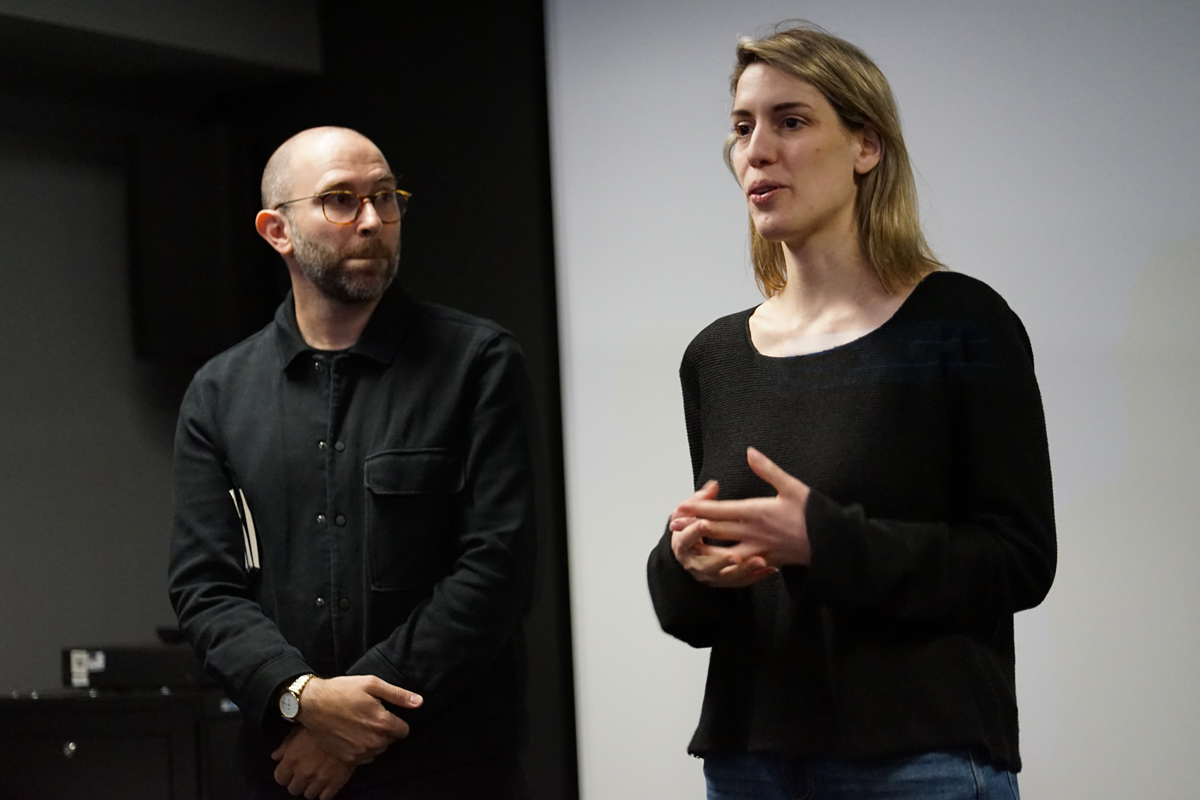
Filmmakers Isaac Knights-Washburn and Nadja Lapcevic introduce Thorntree at a private screening in May 2025
What inspired you to make a film about Thorntree Street?
We began volunteering at Thorntree Street and soon became close with the residents. One day, a resident learned we were filmmakers and suggested we make a film about the community. It was unusual — normally, a documentarian has to seek out subjects, but here we were being invited in.
I’d been drawn to Thorntree Street partly because my father struggled with alcohol dependency all his life and passed away at 53. I often wondered how his life might have been different if he’d had a place like this. So when the opportunity arose, it felt not only unique but deeply personal, giving me a perspective on addiction in men that I felt compelled to explore.
How did you build a relationship with the tenants that allowed you to capture such candid footage?
We built trust over time by showing up consistently and sharing in everyday life at Thorntree Street. From the idea’s first spark to our first day filming was over a year — a year of volunteering, joining activities, going on holidays, and dropping by for snooker or a BBQ. By then, our relationships were rooted in trust and respect, so when the camera arrived, everyone remained relaxed and open.
What were the challenges of filming in an environment like Thorntree Street?
The vulnerability of our contributors was our main concern throughout the filming process. This was applicable to both the residents and the staff members of Thorntree Street. We felt incredibly grateful that we were given such enormous trust by the people appearing in the film, and we did everything we could not to betray it.
“From the idea’s first spark to our first day filming was over a year — a year of volunteering, joining activities, going on holidays, and dropping by for snooker or a BBQ.”
Isaac Knights-Washburn
Director
How did the staff support you with the filming?
Thorntree Street staff were incredibly supportive throughout. From helping facilitate the filming, to making themselves available, to discussing particularities around the residents and their daily routines with us, the staff were a pivotal element of this production process. Each resident has a specific health chart and the staff members have gone through these in great detail with the film crew, flagging anything that could be triggering or upsetting to the residents. Finally, the staff members assisted us in getting consent from the residents, which was a very important part of the filming process.
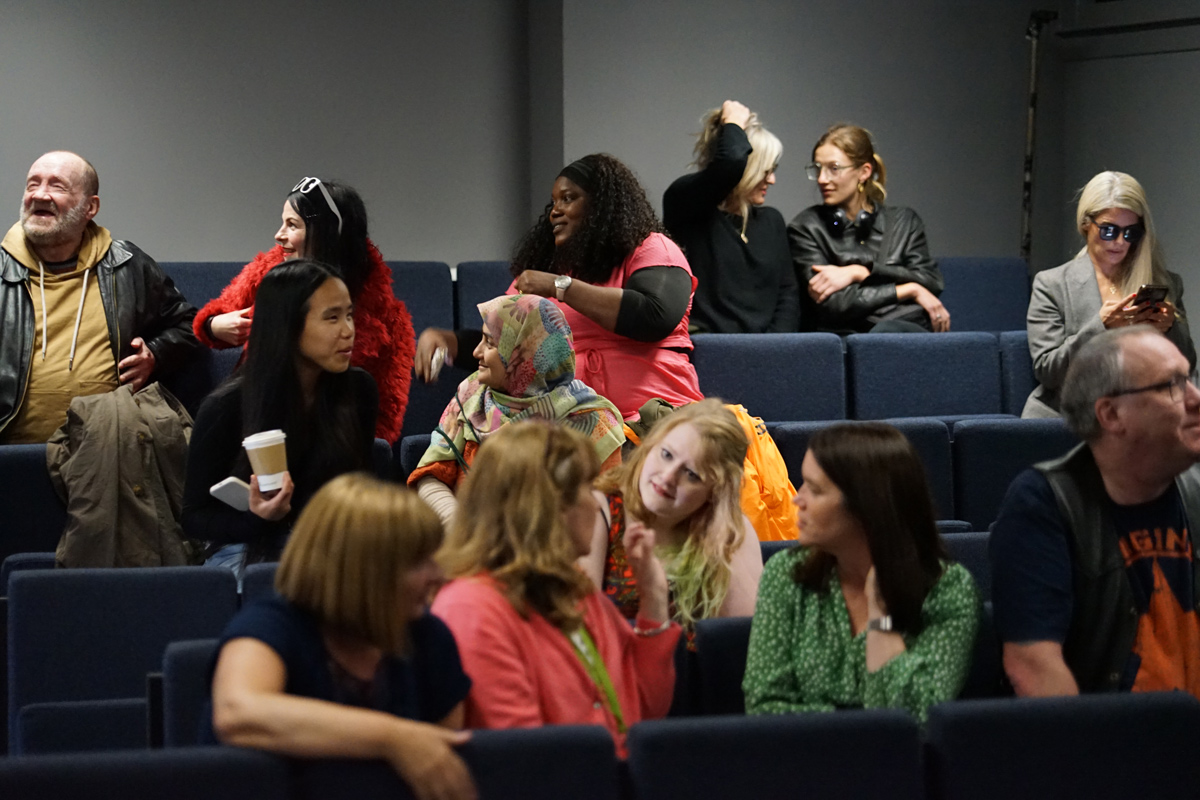
Current and former staff, residents and friends gathered to watch a private film screening as a part of safeguarding around the film
Some of the tenants in the film have now, sadly, died. What approach have you taken to supporting the other tenants and staff when they watch the film?
We had a lot of help around this process from our executive producer Sinead Kirwan. A feature documentary she produced, titled “Dying to Divorce” features graphic details of domestic physical violence, which was potentially triggering for the wider audience of the film. As a result, she developed a trauma-informed screening guide with her colleagues and Screen Scotland, which instructed filmmakers in similar situations on how to prevent re-traumatising while seeing the film. One of the helpful instructions included informing the viewer what they are about to see – and in case of our contributors this was particularly important as they are featured prominently in the film, sometimes in states that are not flattering and easy to watch. The other thing we learned is to always offer a break if the screening becomes too overwhelming, usually we would point the audience to a “quiet place” outside the cinema room where they can gather their thoughts and reset if necessary. Finally, it is important to have a discussion after the screening, to give everyone that feels like sharing how the experience made them feel a chance to do that. It is equally normal for people not to be able to share their thoughts right after they’ve seen the film, so offering for them to get in touch at a later date to discuss the film is advisable.
What are the next steps for the film?
Hopefully the film will be accepted into a festival in the near future, which will be its world premiere. After that, we will continue submitting it to festivals and eventually move onto a UK theatrical distribution, accompanied by an impact campaign that will be developed in collaboration with Rowan Alba.
Thorntree Production credits
Director: Isaac Knights-Washbourn
Produced by: Nadja Lapcevic
Co-Produced by: Hrvoje Osvaldić
Executive Producer: Sinead Kirwan
Director of Photography: Antonio Pozojevic
Editor: Will Hewitt
Music: Adrian Leung
Production Companies: Varda Pictures in co-production with Petnaesta Umjetnost
Funders: Screen Scotland, Croatian Audiovisual Center, Rowan Alba, Varda Pictures
More about Varda Pictures
Varda pictures was founded in 2021 by Nadja Lapcevic, with an aim to develop and produce independent films with daring and socially relevant topics. Inclusiveness and diversity are at the centre of their work, both in crewing and in the content they create. Their mission is amplifying unrepresented voices and giving them a space in the film and television landscape. They are well-versed in co-productions and have strong ties with the Western Balkan region.
You can find out more about Varda Pictures work over on their website at https://varda.pictures
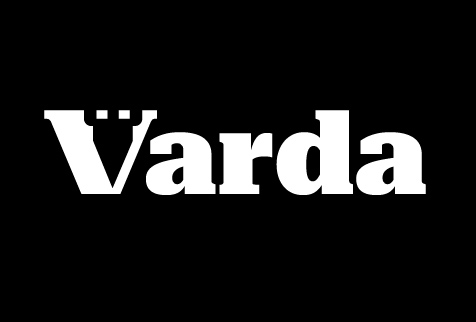
Images by Antonio Pozojević
The images accompanying this article were taken by Thorntree Director of Photography Antonio Pozojević during the production of the film. You can see all of the photos in this collection on our accompanying gallery by clicking this link.
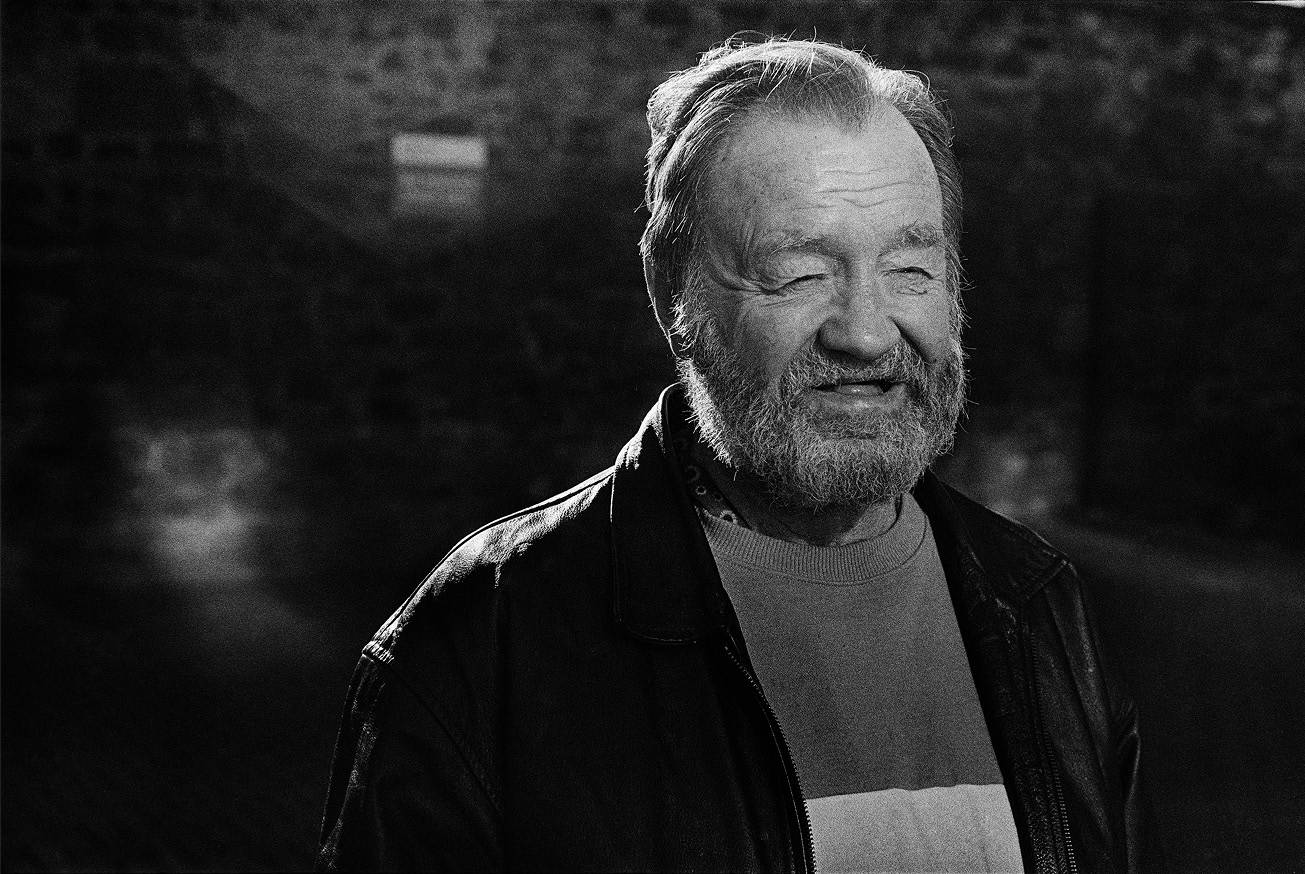
About us
Latest news
Rowan Alba CEO highlights three areas for urgent political action
Three urgent areas to address homelessness
Rowan Alba brings Mental Health Arts Festival event to Spaces
Self-Management at Spaces
Rowan Alba thanks Board Members and welcomes Calum Wilson as Chair
New Chair appointed
Community Allotment creates a place to grow in the city
A beautiful seed has been planted
Forum Theatre company creates work based on Rowan Alba lived experiences
A new way of looking at homelessness
Rowan Alba creates multimedia and interactive experiences to support self-management
Videos, audio and experiential activities support self-management
Karen Barr calls on Council to consider more than just housing
Edinburgh Housing Crisis
Community Photovoice expands across Rowan Alba services
Our Community Photovoice project expands to all services
Sidonie runs the Marathon for the women of Stramullion
Sidonie will be running the Marathon to raise funds for Stramullion
A word from our CEO
An update from Karen Barr, after 2 years as CEO
Supporting our community through embedded psychological support
Sarah Philips tells us about her work in our accommodation services
We celebrate 20 years of Ann Logan
Ann’s contribution to Rowan Alba’s services has been immeasurable
Addiction, chaos and hospital visits
CARDS staff member Michaela Devlin shares her experiences
CARDS work to end stigma of overlooked ARBD condition
ARBD is a result of alcohol abuse and is often misdiagnosed
Rowan Alba officially opens 9 new homes-for-life in Edinburgh
Thorntree Mill welcomes guests to celebrate launch
Plus ça change…100 years since the Addison Act on housing
The centenary of Council Housing (from 2019)


